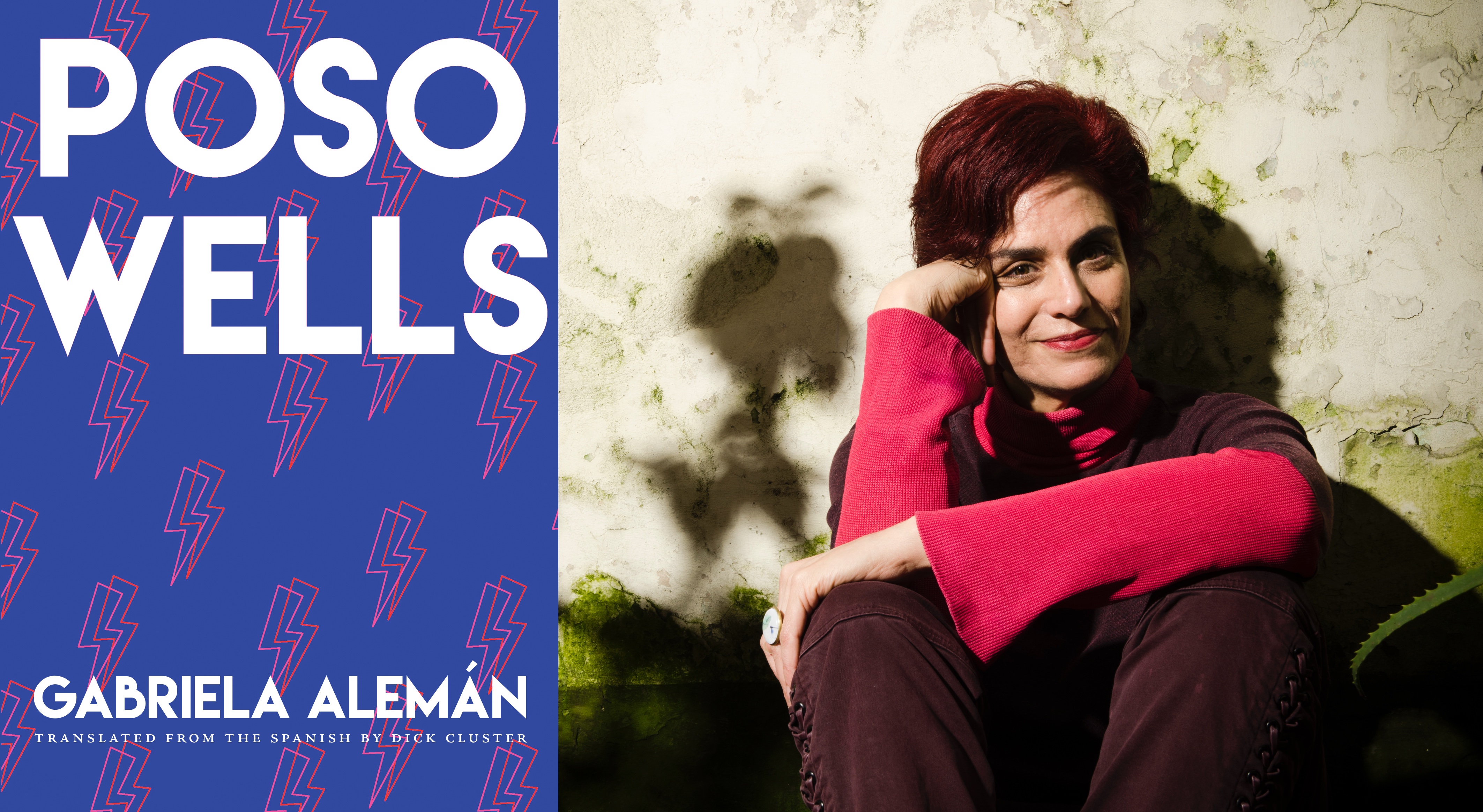You are standing in the middle of a multitude. You are waiting for the leading presidential candidate to arrive to this peripheral neighborhood and address his voters. You are sweating. The air is moist, and the darkness of the sky reminds you of the mud beneath your feet. You hear the disruptive beat of propellers, the accidental landing of a helicopter behind the stage. The politician walks forward, takes the microphone, and—while the ovation is still on—his body makes a spectacular combustion. It only takes the fire a few minutes to turn him (and his entourage) into ashes.
This improbable scene sets the rules of Poso Wells. A novel written by Ecuadorian writer, Gabriela Alemán, recently translated by Dick Cluster. The ongoing absurdity continues when a national newspaper omits journalist Gonzalo Vara’s pitch on the disappearance of tens of women during the past several decades. Instead, the editor demands Varas a full story about Vinueza, the politician who has to replace the incinerated candidate. Vinueza, the only survivor on stage, is kidnapped by a group of blind men while the fire is still flaring.
Aleman’s satirical thriller was first published in 2007. The idea of creating this novel came after reading a short story named “The Country of The Blind,” written by one of her favorite authors, H. G. Wells. And so, the story—placed at the economical capital of her country, Guayaquil— brought to the surface real local issues such as corruption and femicides. The fantastic twist comes when we, the readers, allow ourselves to immerse into the aura of sci-fi, just to realize that sometimes realism is built with elements of the unbelievable.
“Poso Wells does not appear on any map. How could it? The last time anyone did a topographical survey, that enormous mass of mud dredged from the estuary was still part of the river.” With these first lines, Alemán describes the murky and fictional corner of Guayaquil that names her novel.
Poso Wells exists within two dimensions. One is the ordinary landscape of a marginal community, where law is imparted by local and violent leaders. The other is what lives underneath that shell. The piece has the atmosphere of a journalistic feature, not only because Varas –the journalist— is our hero, but because the division between fiction and nonfiction is blurry. For example, in order for Varas to find the entrance to the underworld, he looks into the archives of the newspaper. There, he finds a piece published five decades ago by a foreign journalist, who wrote about a lineage of mysterious blind men living in the area. Did that really happen? As a reader, I felt the need to look into the archives of that old newspaper and corroborate it myself.
Throughout the book, Alemán embroiders a series of characters that are at times ironical, and other times fall into the depiction of cartoons. They are playful and ironic, however (at times) it feels like the outcome of their actions is predictable or too good to be true. But the masterfulness of the pieces lies in how language plays a fundamental role to understanding the interaction between places (the ground and the underground), belief systems (religion and patriarchy), and power (politics and money).
If you are looking for an exciting story to take your breath away–non-stop— Poso Wells is the answer. With this piece, Alemán achieves a serious composition that transports the reader to the settings of television series such as Stranger Things and Twin Peaks, without losing a sort of Dickensian style of storytelling. She draws a full circle of political and social criticism while still preserving the freshness of her voice. After getting to the end, we might look for an excuse to read her again.
Photo courtesy of City Lights Publishers




